Introduction
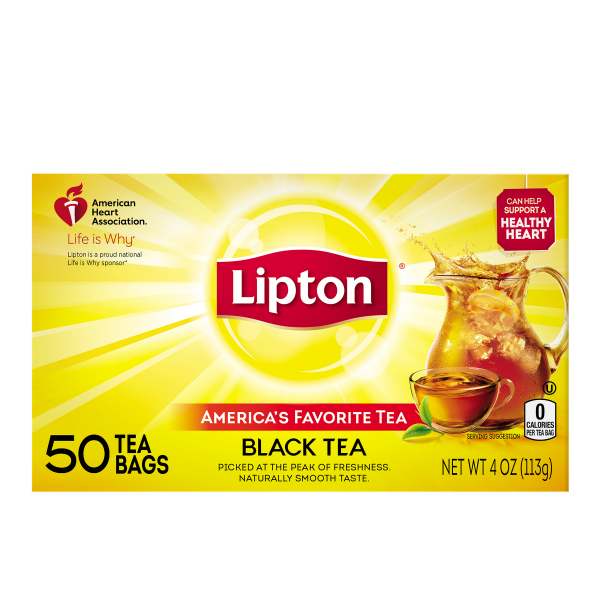
In the busy world we live in, many individuals turn to beverages like tea to provide a much-needed energy boost throughout the day. For tea enthusiasts, understanding the caffeine content in their brew is crucial in managing their overall caffeine intake. In this article, we will delve into the caffeine levels found in Lipton Tea and explore the variations in different tea variants. By gaining insight into the caffeine content in Lipton Tea, individuals can make informed choices and enjoy their favorite beverage while staying within safe limits.
Overview Of Caffeine Content In Lipton Tea
Lipton Tea offers a variety of flavors to satisfy different palates, and it is important to understand the caffeine content in each variant. On average, Lipton Black Tea contains around 55-65 milligrams of caffeine per 8 fl oz cup. Green tea, on the other hand, contains slightly less caffeine, with about 35-45 milligrams per serving. Herbal and decaffeinated teas, as the names suggest, have negligible caffeine content and are suitable for those seeking a caffeine-free option. Understanding the caffeine levels in Lipton Tea enables individuals to make informed choices and manage their caffeine intake effectively.
Importance Of Understanding Caffeine Intake
Understanding caffeine intake is crucial for individuals who are mindful of their health and wellness. Caffeine affects the body in various ways, such as stimulating the central nervous system and increasing alertness. However, excessive caffeine consumption can lead to side effects like increased heart rate, sleep disturbances, and even dependency. By knowing the caffeine content in Lipton Tea and other beverages, individuals can make informed choices about their caffeine intake. This knowledge allows them to manage their caffeine consumption and maintain a healthy lifestyle. It also helps individuals with caffeine sensitivity or those who prefer to limit their caffeine intake to make suitable beverage choices.
Caffeine In Lipton Tea Bags
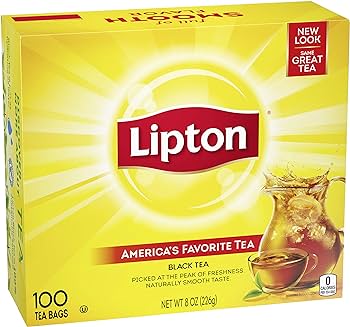
Lipton Tea bags are a popular choice for tea lovers looking for a quick and convenient caffeine boost. The caffeine content in Lipton Tea bags varies depending on the type of tea. Lipton Black Tea bags typically contain around 55 milligrams of caffeine per 8-ounce cup, while Lipton Green Tea bags have slightly less caffeine, averaging around 45 milligrams per cup. It’s important to note that factors such as brewing time and water temperature can influence caffeine levels. So, for those looking for a moderate caffeine kick, Lipton Tea bags are a great option.
Caffeine Content In Lipton Black Tea
Lipton Black Tea is known for its bold and robust flavor, and it also packs a caffeine punch. On average, an 8-ounce cup of Lipton Black Tea contains around 55-65 milligrams of caffeine. However, it’s important to note that the actual caffeine content may vary slightly depending on factors such as brewing time and temperature. For tea lovers seeking a moderate caffeine boost, Lipton Black Tea is a great option. Remember to enjoy it in moderation and adjust brewing parameters to suit your personal preference.
Factors That Affect Caffeine Levels In Tea Bags
Various factors can affect the caffeine levels in tea bags. One important factor is the type of tea leaves used. Different tea varieties, such as black tea, green tea, or herbal tea, have varying amounts of caffeine naturally present in them. The size and quality of the tea leaves can also have an impact on caffeine levels. Additionally, the brewing time and temperature can affect how much caffeine is extracted from the tea leaves. Longer brewing times and higher temperatures tend to result in higher caffeine content in the final cup of tea.
Caffeine In Lipton Green Tea
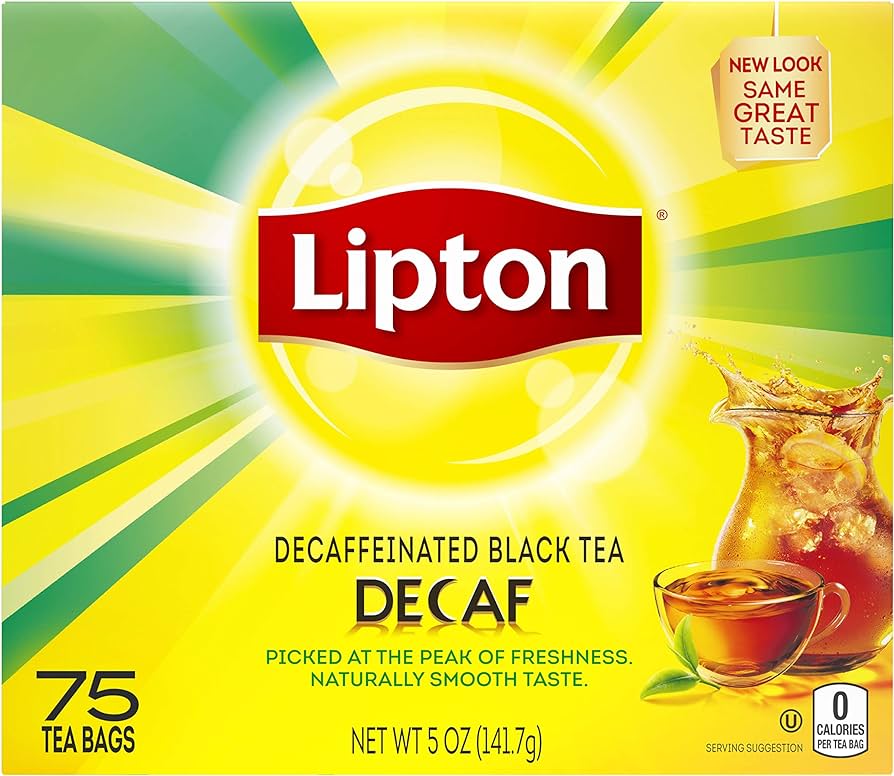
Caffeine in Lipton Green Tea varies depending on individual brewing methods and personal preferences. On average, an 8-ounce cup of Lipton Green Tea contains approximately 35 milligrams of caffeine. However, it’s important to note that the caffeine content can be influenced by factors such as the steeping time and water temperature. Some people may prefer a lighter brew, which can result in lower caffeine levels, while others may opt for a stronger brew, which can have slightly higher caffeine content. Ultimately, the caffeine levels can be adjusted based on personal preferences and desired tea experience.
Caffeine Content In Lipton Green Tea
Lipton Green Tea offers a refreshing option for those who prefer a lighter and more delicate brew. On average, an 8-ounce cup of Lipton Green Tea contains approximately 35 milligrams of caffeine. However, the caffeine content can vary depending on individual brewing methods and personal preferences. Steeping time and water temperature can influence the caffeine levels. Some people may choose a lighter brew, resulting in lower caffeine levels, while others may prefer a stronger brew with slightly higher caffeine content. Ultimately, the caffeine levels in Lipton Green Tea can be adjusted based on personal preferences and desired tea experience.
Comparison Of Caffeine Levels In Different Lipton Green Tea Variants
When it comes to Lipton Green Tea, there are various variants to choose from, each with its own unique caffeine content. Here’s a comparison of caffeine levels in different Lipton Green Tea variants:
- Lipton Green Tea Classic: This traditional green tea variant contains approximately 35 milligrams of caffeine per 8-ounce cup.
- Lipton Pure Green Tea: This variant is made with 100% pure green tea leaves and also has around 35 milligrams of caffeine per 8-ounce cup.
- Lipton Green Tea Decaffeinated: If you prefer a caffeine-free option, the decaffeinated variant of Lipton Green Tea is a great choice.
These different variants allow you to choose the level of caffeine that suits your preference and lifestyle.
Caffeine In Lipton Herbal And Decaffeinated Teas
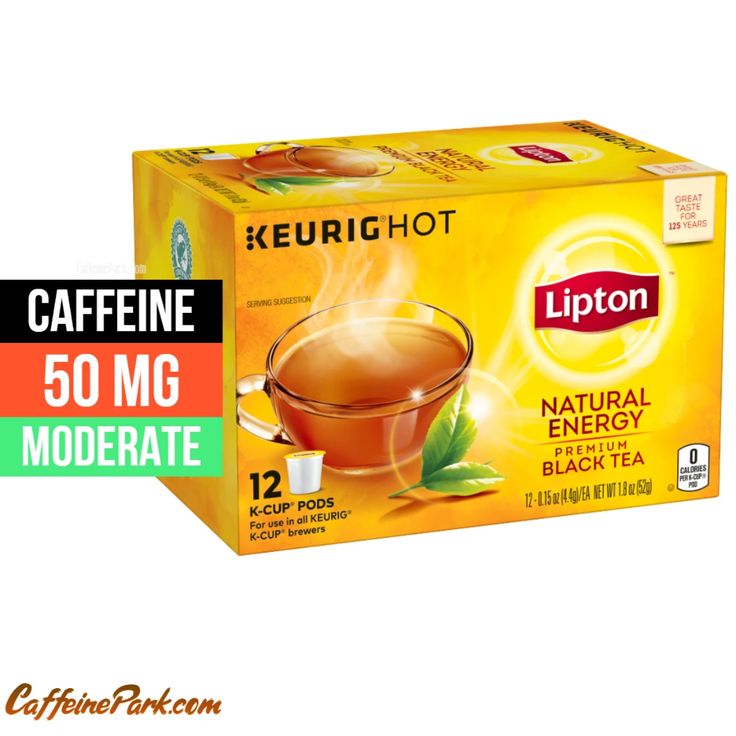
Lipton also offers herbal and decaffeinated tea options for those who prefer to avoid or limit caffeine intake. Herbal teas, such as chamomile or peppermint, are naturally caffeine-free, making them a great choice for individuals who are sensitive to caffeine. Lipton also offers decaffeinated versions of their tea, which undergo a process to remove most of the caffeine while maintaining the flavor. These decaffeinated teas provide a soothing and enjoyable beverage option without the stimulating effects of caffeine. So whether you’re looking for a caffeine-free herbal tea or a decaffeinated black or green tea, Lipton has you covered.
Caffeine Content In Lipton Herbal And Decaffeinated Teas
Lipton also offers herbal and decaffeinated tea options for those who prefer to avoid or limit caffeine intake. Herbal teas, such as chamomile or peppermint, are naturally caffeine-free, making them a great choice for individuals who are sensitive to caffeine. Lipton also offers decaffeinated versions of their tea, which undergo a process to remove most of the caffeine while maintaining the flavor. These decaffeinated teas provide a soothing and enjoyable beverage option without the stimulating effects of caffeine. So whether you’re looking for a caffeine-free herbal tea or a decaffeinated black or green tea, Lipton has you covered.
Alternative Options For Caffeine-sensitive Individuals
For individuals who are sensitive to caffeine or prefer to avoid it entirely, Lipton also offers alternative options. One great choice for caffeine-sensitive individuals is Lipton’s herbal tea selection, which includes flavors like chamomile and peppermint. These herbal teas are naturally caffeine-free, providing a soothing and relaxing experience without the stimulating effects of caffeine. Additionally, Lipton also offers decaffeinated versions of their black and green teas. These decaf teas undergo a process to remove most of the caffeine while still maintaining the flavor, allowing individuals to enjoy their favorite tea without the caffeine content. So whether it’s herbal tea or decaf options, Lipton provides alternatives for those who prefer to limit their caffeine intake.
How To Control Caffeine Intake
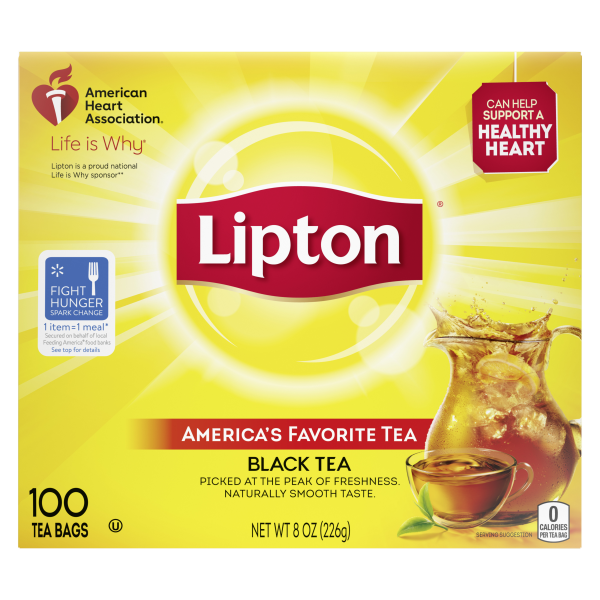
To control caffeine intake while enjoying Lipton Tea, there are a few strategies you can follow. First, opt for decaffeinated or herbal teas, which are naturally caffeine-free. These options provide the same familiar flavors without the stimulating effects of caffeine. Second, consider limiting the number of cups of caffeinated tea consumed in a day. By being mindful of portion sizes, you can regulate your caffeine intake. Lastly, understanding your own caffeine sensitivity and personal tolerance can help you make informed choices about how much caffeine is right for you.
Tips To Manage Caffeine Consumption In Lipton Tea
To manage caffeine consumption in Lipton Tea, there are a few tips you can follow.
- Opt for decaffeinated or herbal teas: These options are naturally caffeine-free, allowing you to enjoy the flavors of Lipton Tea without the stimulating effects of caffeine.
- Limit the number of cups: Be mindful of the portion sizes and consider reducing the number of cups of caffeinated tea you consume in a day.
- Time your tea intake: Avoid drinking caffeinated tea too close to bedtime, as it may interfere with your sleep.
- Stay hydrated: Drink plenty of water throughout the day to stay hydrated and balance out the effects of caffeine.
- Listen to your body: Understand your own caffeine sensitivity and tolerance levels. If you experience any negative effects, consider reducing or avoiding caffeine altogether.
Understanding Caffeine Sensitivity And Personal Tolerance
Understanding caffeine sensitivity and personal tolerance is crucial when it comes to managing your caffeine intake. Individuals can have varying levels of sensitivity to caffeine, meaning that some may experience stronger effects even with small amounts. It is important to listen to your body and pay attention to how caffeine affects you personally. Factors such as age, weight, and overall health can also influence your tolerance to caffeine. By understanding your own sensitivity and tolerance levels, you can make informed decisions about how much caffeine you can comfortably consume in Lipton Tea or any other beverages.
Conclusion
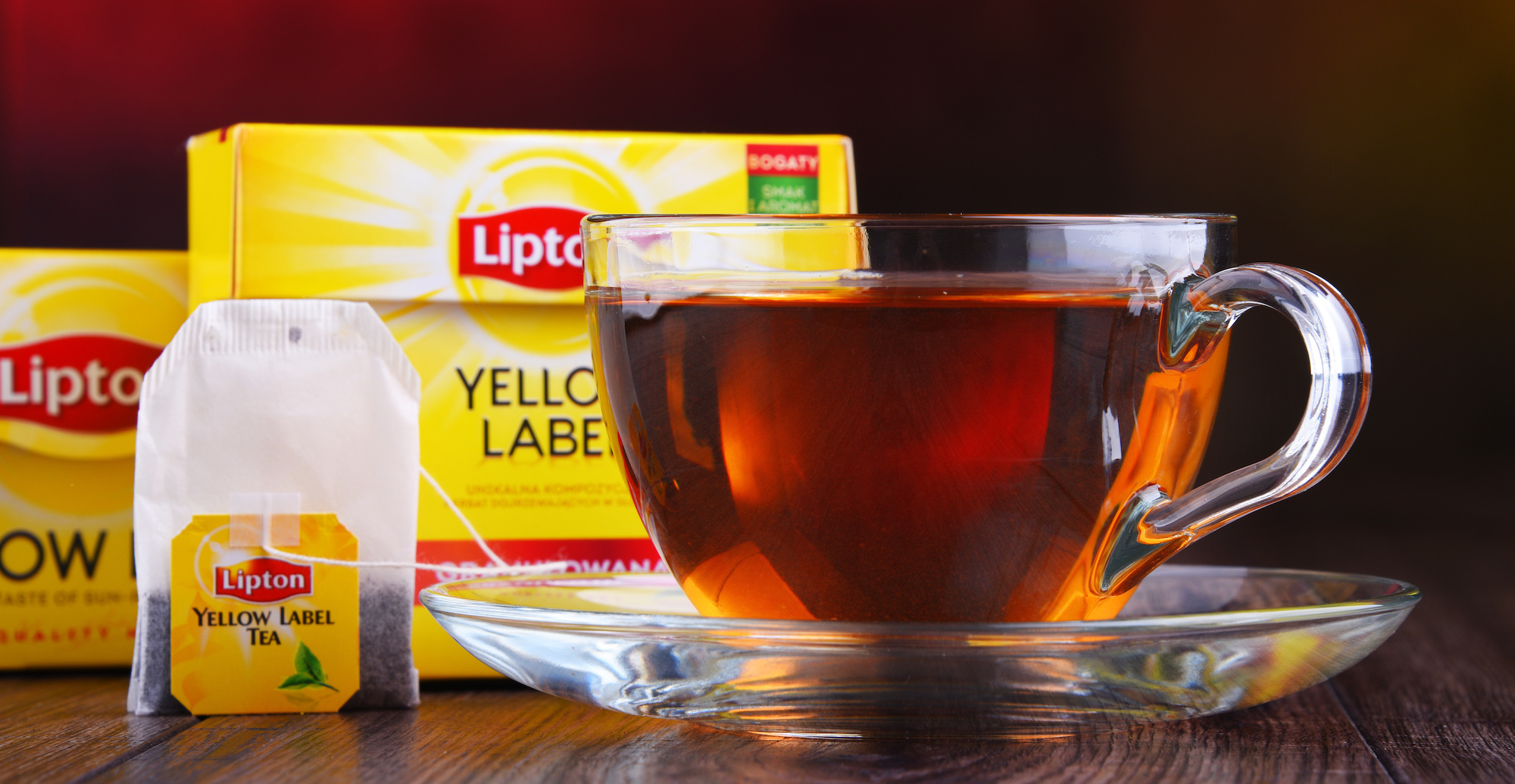
In conclusion, understanding the caffeine content in Lipton Tea is essential for managing your caffeine intake. Lipton Black Tea contains an average of 55-65 milligrams of caffeine per 8 fl oz cup, while Lipton Green Tea has a lower caffeine content. For caffeine-sensitive individuals, Lipton Herbal and Decaffeinated Teas provide alternative options. It is important to listen to your body and be aware of your caffeine sensitivity and personal tolerance. By making informed choices about your caffeine intake, you can enjoy Lipton Tea while staying within safe limits.
Summary Of Caffeine Levels In Lipton Tea Variants
When it comes to caffeine content, Lipton Tea offers a range of options to suit different preferences. Lipton Black Tea, with an average caffeine content of 55-65 milligrams per 8 fl oz cup, provides a moderate caffeine boost. On the other hand, Lipton Green Tea contains a lower amount of caffeine compared to black tea, making it a lighter option. For those who prefer caffeine-free options, Lipton Herbal and Decaffeinated Teas are excellent choices. By understanding the caffeine levels in Lipton Tea variants, individuals can make informed decisions about their caffeine intake.
Making Informed Choices For Your Caffeine Intake
When it comes to managing your caffeine intake, it’s crucial to make informed choices. Understanding the caffeine levels in Lipton Tea variants allows you to select the option that aligns with your preferences and caffeine tolerance. If you prefer a moderate boost, Lipton Black Tea is a suitable choice. For a lighter option, Lipton Green Tea offers a lower amount of caffeine. Individuals who are caffeine-sensitive can opt for Lipton Herbal and Decaffeinated Teas, which are caffeine-free. By being aware of the caffeine content in each variant, you can enjoy Lipton Tea while still controlling your caffeine consumption.
Frequently Asked Questions about the Caffeine Content in Lipton Tea
Q: How much caffeine is in Lipton Tea?
A: The amount of caffeine in Lipton Tea can vary depending on the specific type and brewing time. On average, Lipton Tea contains about 55 milligrams of caffeine per 8-ounce serving. However, it is important to note that this value is approximate and may differ slightly.
Q: Which types of Lipton Tea have caffeine?
A: Most varieties of Lipton Tea contain caffeine. This includes popular options such as Lipton Black Tea, Lipton Green Tea, and Lipton Yellow Label Tea. However, Lipton does offer some caffeine-free herbal teas for those looking to avoid caffeine altogether.
Q: Is the caffeine content the same in all Lipton Tea flavors?
A: No, the caffeine content can vary slightly between different flavors of Lipton Tea. For example, Lipton Black Tea generally contains more caffeine than Lipton Green Tea. It’s always a good idea to check the packaging or product information for specific caffeine details about a particular flavor.
Q: How does the brewing time affect the caffeine content in Lipton Tea?
A: The longer you steep your Lipton Tea, the more caffeine it may contain. Caffeine is extracted from tea leaves during the brewing process, so leaving your tea bag in hot water for a longer duration can result in a stronger cup of tea with slightly higher caffeine levels.
Q: Can I reduce the caffeine content in my Lipton Tea?
A: Yes, if you are looking to reduce your caffeine intake, there are a few options you can consider. Firstly, you can choose one of Lipton’s naturally caffeine-free herbal teas. Secondly, you can opt for decaffeinated versions of Lipton Tea, which undergo a process to remove most of the caffeine. Additionally, you can shorten the brewing time to reduce the caffeine content of your cup.
Q: Is the caffeine content in Lipton Tea suitable for children or pregnant women?
A: It is generally recommended that children and pregnant women limit their caffeine consumption due to potential health concerns. If you have any specific concerns or dietary restrictions, it’s best to consult with a healthcare professional who can provide personalized advice.
Q: Are there any health benefits associated with the caffeine in Lipton Tea?
A: Caffeine, when consumed in moderation, can offer certain benefits such as increased alertness and improved focus. However, it is important to consume caffeine in moderation and be aware of its potential side effects, especially for individuals sensitive to its effects.
These FAQs should help provide you with some general information about the caffeine content in Lipton Tea. If you have specific concerns or questions, we recommend reaching out to Lipton or referring to their official website for more detailed information.

Visit Fat Bee Cafe Chandler, Arizona, for a taste of your favorite handcrafted drinks in an inviting atmosphere! Whether you’re looking for a strong coffee to start your morning or a mid-day bubble tea pick-me-up, our coffee shop in Chandler, AZ, features an exciting menu of options! We serve traditional, authentic artisan boba, a variety of flavorful waffles, ice cream, and high-quality espresso drinks. Stay awhile and enjoy your favorites while using our in-house WiFi. Contact us to learn more!